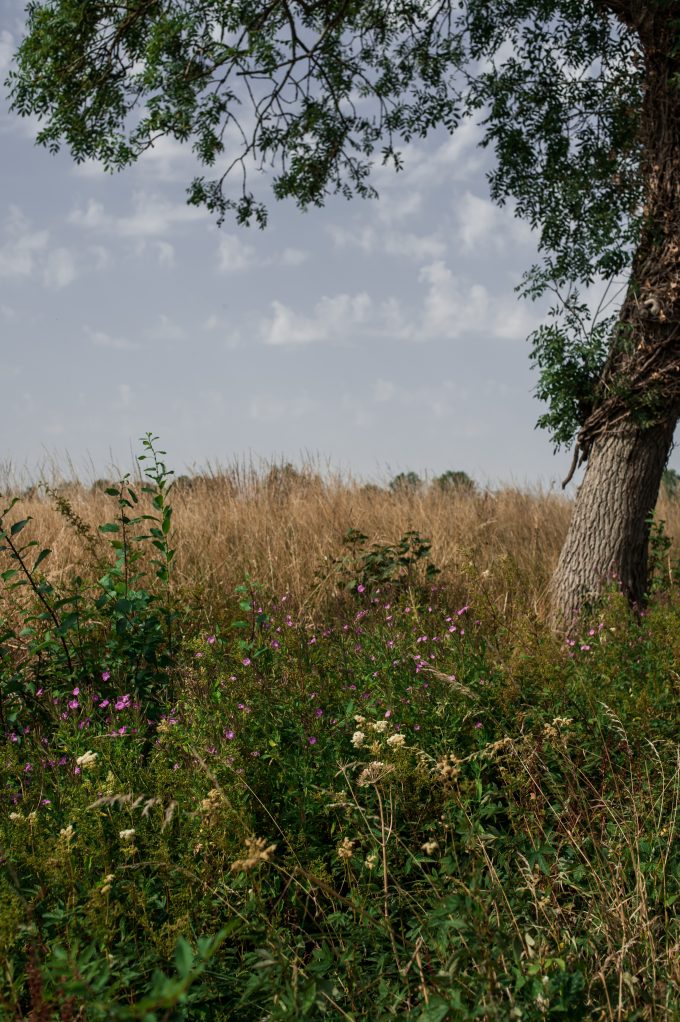Estimated time: 5 mins.

Meadowsweet, Filipendula ulmaria, is a perennial plant that can be found in ditches, hedgerows, damp fields, or on the edge of streams and riverbanks. In the UK, it can be found in July and August. While it is a native plant in Europe and parts of Asia, it also grows in North America between June and September. It is also known as mead wort, and was often used to flavour beverages such as wines, beers and vinegars in the Bronze Age. I tend to use meadowsweet when I mill my Botanical Blends.
You do need to take care that the flowers and the leaves are thoroughly dried in order to incorporate them into your flour blends. To do this, I dry the flowers over two days in my proving cabinet. Once dried, I store the meadowsweet in an airtight jar to ensure that it retains its lovely fragrance.
I enjoy using meadowsweet flowers in my milling blends when I want to add an element of natural fragrance to my breads. Meadowsweet is a wonderful addition to enriched breads such as brioche or milk breads that have a gentle flavour on their own. I think of meadowsweet almost as an English vanilla, with its lovely notes of honey, vanilla and almond. I feel there is a synergy to using something so aromatic to flavour-enriched doughs.
Meadowsweet is actually in the rose family, so it blends really beautifully with roses in Botanical Blends. I often pair them together for a complementary floral element to my breads. In terms of milling, I typically use 1–2 heads of neadowsweet in 500g of flour.
You can also add meadowsweet to syrups for another floral flavouring option. Fruit syrups such as apple syrups, pear syrups or plum syrups infused with meadowsweet flowers are just delightful for drizzling over cakes or other bakes.
There are warnings about not eating too much meadowsweet since it does contain salicylic acid. Of course, you would have to incorporate quite a lot of Meadowsweet in your breads for that to be a problem, but it is important to note.
DISCLAIMER:
The advice given in this post is based on harvesting in the UK. While we are sharing what we do here at the Sourdough School, ingesting plants that you are not absolutely certain about, or have not identified with 100% certainty can be dangerous. It is very important that you verify any plants that you harvest before consuming them.

